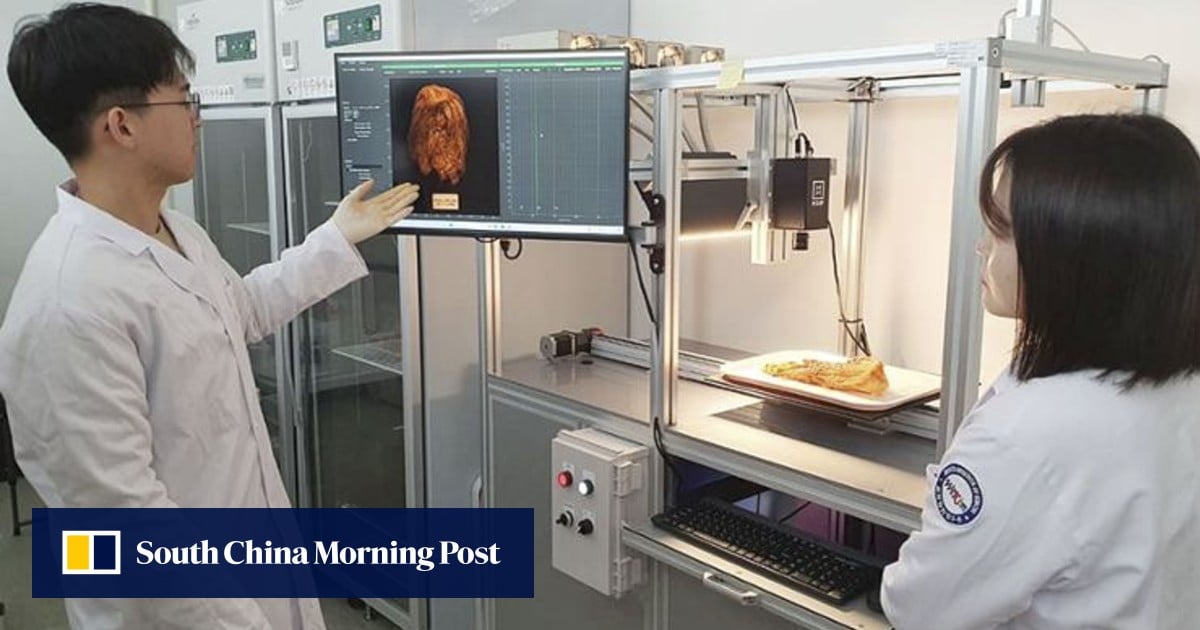By Ko Dong-hwan
Data-driven artificial intelligence (AI) is being used to guarantee the high quality of mass-produced kimchi for global consumers, according to a state-run kimchi laboratory in South Korea.
This technological approach marks a departure from the traditional method of pickled cabbage making, which has historically relied on the human touch.
The World Institute of Kimchi (WiKim) announced the successful development of this technology following a six-month joint project that concluded in December 2023.
The collaboration involved a domestic AI developer and a digital education consulting firm. The primary objectives of the project were to construct a data set necessary for quality checks on kimchi and to create an AI model capable of analysing the collected data.

In collaboration with data solution provider Catalonix and educational technology service developer SLI (Solution Learning Innovation), both based in Seoul, WiKim succeeded in constructing a comprehensive data set.
The data set contained 270,000 records of RGB colour and hyperspectral images, facilitating a detailed food quality evaluation at each stage of the kimchi-making process.
Why fermented foods, and drinks like kombucha, are good for your brain too
Why fermented foods, and drinks like kombucha, are good for your brain too
The consortium extracted this data from various stages of kimchi making, including the seasoning of cabbages in salty brine, the mixing of the ingredients and spicy paste, and the fermentation process.
Using this data set, the AI model is capable of scanning and analysing images to determine the levels of sweetness, saltiness and fermentation at each stage. These key factors predominantly influence the overall quality of the pickled side dish.
The data set and AI model together enable efficient and precise quality checks for kimchi at production plants. This involves assessing the qualities of ingredients, evaluating the mixing process, and monitoring the fermentation stages.
The system can grade the kimchi based on its qualities, providing a comprehensive quality assessment of the final product.
“By solely analysing the image data set, this technology can expedite the inspection of mass-produced kimchi from the manufacturing stage through distribution faster than previous methods, all the while ensuring a consistently high level of quality,” WiKim president Chang Hae-choon said. statement.
The AI-based, non-destructive quality check model for kimchi has overcome the past limitations and raised production efficiency
This breakthrough is anticipated to enhance Korea’s kimchi industry, which has traditionally lacked concrete standards for quality assessment.
It has largely depended on subjective judgments from individual makers, primarily based on their personal experiences.
Moreover, the diminishing workforce in the country, attributed to an ageing population, poses a significant risk to an industry that has been slow to adopt technological advancements and has relied heavily on human senses for quality control.
Such problems loom large at a time when the country’s kimchi products are becoming more popular worldwide thanks to the global expansion of Korean culture, led by K-pop and social media.

Chang emphasised the need to address the challenges involved in exporting kimchi, from cultivating ingredients to shipping the products overseas. Without more accurate and systematic analysis, ensuring uniform quality for global kimchi consumers would remains a challenge.
“In order to ensure a consistent high quality of exported kimchi, it became imperative to abandon our traditional methods and embrace a new, innovative approach,” Chang said. “The AI-based, non-destructive quality check model for kimchi has overcome the past limitations and raised production efficiency.”
WiKim’s accomplishment under the Ministry of Science and ICT follows the National Information Society Agency’s selection of the institute for a national R&D project last year. This project aimed to support the creation of a data set for AI learning.

